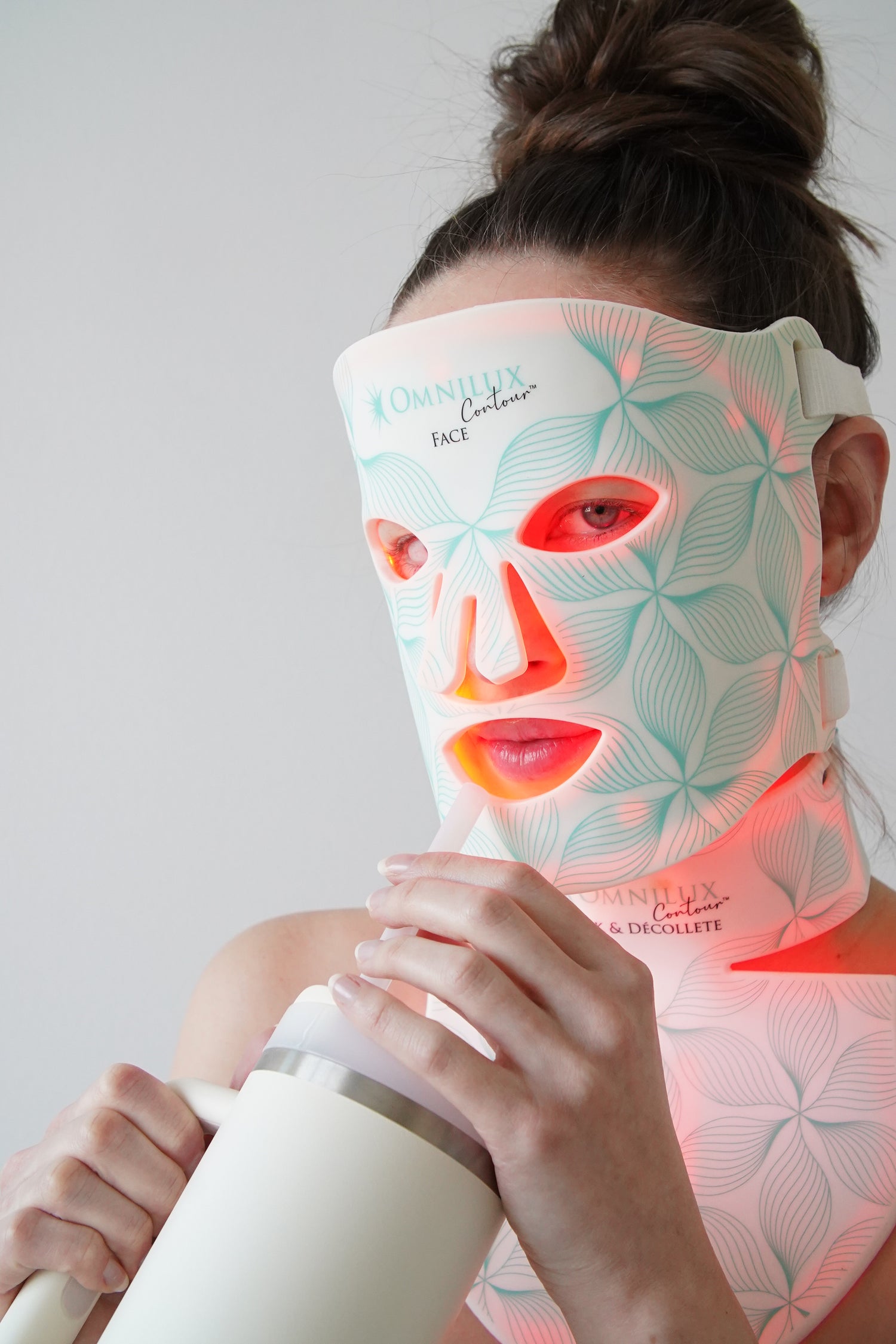What is Mineral Sunscreen?
Mineral sunscreen is a type of sunscreen that uses physical blockers like zinc oxide and titanium dioxide to reflect UV rays away from the skin.
Unlike chemical sunscreens, which absorb UV rays, mineral sunscreen sits on top of the skin, acting as a physical barrier.
Mineral sunscreen is less likely to cause irritation or allergic reactions than chemical sunscreen. If you have sensitive or acne-prone skin, try one of our favorite mineral SPFs below.
Mineral Sunscreen vs Chemical
Mineral sunscreens and chemical sunscreens have different active ingredients. People with sensitive skin can easily experience irritation when using chemical SPF due to the main ingredients.
Chemical Sunscreens absorb UV radiation from the sun, preventing harsh rays from penetrating your skin. Chemical SPF ingredients include:
- octinoxate (octyl methoxycinnamate)
- octisalate (octyl salicylate)
- oxybenzone (benzophenone)
- avobenzone
Mineral Sunscreens, also called physical sunscreens, physically reflect UV radiation by creating a barrier on the skin. Mineral/Physical SPF ingredients include:
- titanium dioxide
- zinc oxide
Skin Pro Tip: If your skin has been breaking out, check the ingredient list on your daily sunscreen for the chemical SPF actives listed above. If you find your sunscreen contains one, switch to a mineral SPF instead! (Look for our favorites listed below!)
Mineral sunscreen provides broad-spectrum protection against both UVA and UVB rays. Unlike chemical sunscreens, which can break down over time and lose effectiveness, mineral sunscreen remains effective for longer periods.
Is mineral sunscreen better for sensitive skin?
Yes, mineral sunscreen is a better option for sensitive skin than chemical sunscreen because it’s less irritating. A study by the American Academy of Dermatology found that mineral sunscreen was less likely to cause skin reactions in people with sensitive skin than chemical sunscreen.
In fact, mineral sunscreen suits all skin types, including acne-prone and oily skin. It’s less likely to clog pores and cause breakouts than chemical sunscreen.
Does mineral sunscreen help with anti-aging?
Mineral sunscreen provides major anti-aging benefits. A study published in the Journal of Investigative Dermatology found that regular use of sunscreen can slow down the aging process by 24%. Mineral sunscreen, in particular, helps prevent the formation of wrinkles and fine lines by protecting the skin from the sun's harmful rays.
Is mineral sunscreen reef-safe?
Yes, mineral sunscreen is reef-safe! Chemical sunscreens, particularly those containing oxybenzone and octinoxate, harm marine life and coral reefs. In contrast, mineral sunscreen doesn't contain these chemicals, making it a safer and more eco-friendly choice.
Our Favorite Mineral Sunscreens
ISDIN Mineral Sunscreen
ISDIN Mineral Brush
ISDIN Mineral Brush is a convenient, easy-to-use mineral sunscreen that provides broad-spectrum protection. It comes in a portable brush applicator that allows for easy touch-ups throughout the day. The formula contains zinc oxide and titanium dioxide, making it suitable for all skin types, including sensitive skin.
ISDIN Eryfotona Ageless
ISDIN Eryfotona Ageless is a mineral-based sunscreen with broad-spectrum protection and anti-aging benefits. It contains a blend of physical blockers such as zinc oxide and titanium dioxide, as well as antioxidants and peptides to help reduce the appearance of fine lines and wrinkles.
EltaMD Mineral Sunscreen
EltaMD Clear
EltaMD Clear is a popular mineral sunscreen for acne-prone and oily skin. It contains 9% zinc oxide and 7.5% octinoxate, providing broad-spectrum protection against UVA and UVB rays. The formula is oil-free, fragrance-free, and non-comedogenic, making it an ideal choice for sensitive skin.
EltaMD UV Lip Balm
EltaMD UV Lip Balm is a mineral-based lip balm that provides broad-spectrum protection against UVA and UVB rays. It contains 7% zinc oxide and 7.5% octinoxate, making it an effective sunscreen for the lips. The formula is also moisturizing and contains hyaluronic acid, which helps keep the lips hydrated.
Alastin Mineral Sunscreen
Alastin Hydratint
Alastin Hydratint is a tinted mineral sunscreen that provides broad-spectrum protection against UVA and UVB rays. The formula contains 11.4% zinc oxide and 4.4% titanium dioxide, making it an effective sunscreen for all skin types. The tinted formula provides light coverage and helps to even out skin tone.
Tips for Using Mineral Sunscreen
Apply generously: To get the full benefits of mineral sunscreen, it's essential to apply it generously. Apply enough sunscreen to cover all exposed skin, and reapply every two hours or after swimming or sweating.
Wait for it to dry: Mineral sunscreen can leave a white cast if not applied properly. To avoid this, wait for the sunscreen to dry completely before applying makeup or going outside.
Look for water-resistant formulas: If you plan on swimming or sweating, look for water-resistant mineral sunscreens.
Mineral sunscreen is an excellent choice for gentle and effective sun protection. It’s less likely to cause skin irritation, is gentle on the environment, and provides broad-spectrum protection against UVA and UVB rays. Additionally, mineral sunscreen can provide anti-aging benefits and is suitable for all skin types. Whether you're hitting the beach or running errands, include mineral sunscreen in your skincare routine to keep your skin healthy and protected!
Resources
Kullavanijaya, P., Lim, H. W., & Wongpraparut, C. (2019). Sunscreens: update on their use and controversies. Journal of drugs in dermatology: JDD, 18(4), 308-313.
Hughes, M. C., Williams, G. M., Baker, P., & Green, A. C. (2013). Sunscreen and prevention of skin aging: a randomized trial. Annals of internal medicine, 158(11), 781-790.
American Academy of Dermatology Association. (2019). Sunscreen FAQs. Retrieved from https://www.aad.org/public/everyday-care/sun-protection/sunscreen-patients/sunscreen-faqs.
Lee, C., Lee, A. Y., & Yoon, H. S. (2020). The efficacy and safety of physical sunscreen ingredients for UV radiation protection. Journal of dermatological science, 98(1), 2-11.






